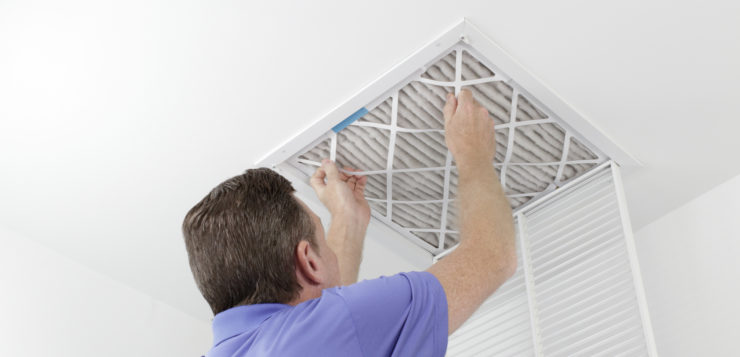If you suffer from allergies and asthma, you might have considered buying a home air filtration system. While these devices are not a complete solution, they definitely can help reduce your symptoms. Home air filters typically function on the principle that they filter out small particulate matter from the air. With a variety of options available that filter particles of varying sizes, choosing one for your home could have you confused.
We have listed five different types of filters and their benefits to help you breathe a little easier.
- Electronic filters. These devices make use of different electrical charges to clear small allergens, particulate irritants from the air. Some of these filters contain collecting plates to capture the particles within the device. Other kinds of these filters transfer electrical charge to particles in the air, causing them to settle on surfaces in the room. Electrostatic precipitators are the most efficient of these.
- Mechanical filters. These devices filter out particles like pollen, dust mites, and pollen by trapping them on a special screen. High-efficiency particulate air (HEPA) filters are capable of filtering 90% of particles 0.3 microns or larger that enter the filter. Hepa filters also filter out irritants in the air like tobacco smoke.
- Hybrid filters. Filters that function using the principles of both electrical, as well as mechanical filtration, are called hybrid filters.
- Gas-phase filters. If you are only looking to remove odors such as perfume, cooking gas smells, and gasses from building supplies and paint, you should consider a gas phase filter. Keep in mind that these air filters only target gasses and do not remove small particles that cause allergies like pollen or dust.
- Ozone generators. While technically not an air filter, some manufacturers claim that ozone cleans the air. These devices intentionally produce ozone and release it into the room. Since ozone in large concentrations is harmful to the lungs, the American Lung Association and the EPA do not recommend them. If you choose an ozone generator, check that it ensures high efficiency over several months, and its ozone production is lower than 0.05ppm.
Choose an air filter that suits your budget and your needs. As there are many counterfeit products available, check the specifications on the printed label and research the air filter you are interested in before buying one.




